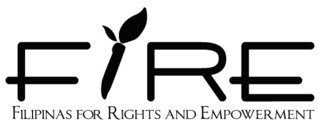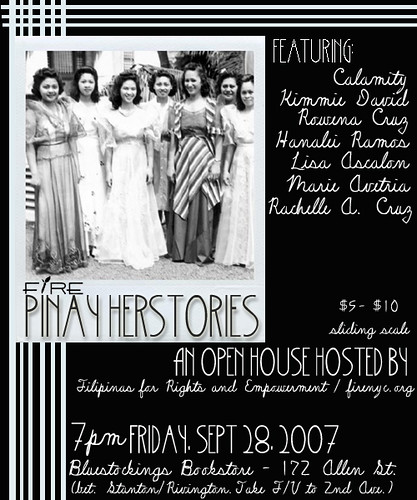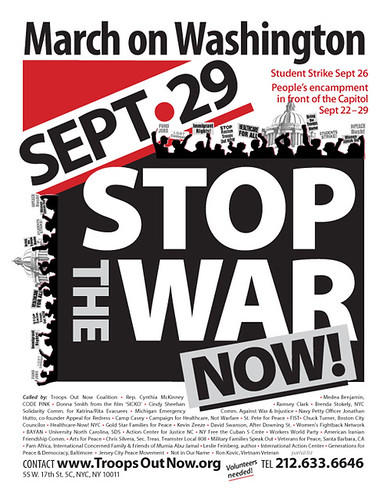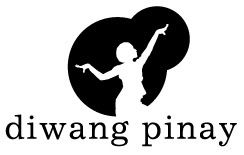Joma Sison is a victim of US and Dutch interests - Dutch lawyer
Written by Dr. Rainer Werning
Wednesday, 05 September 2007
"The Dutch government is sanctioning Jose Maria Sison because first, it is obeying the order of the US and second, it is protecting its investors in the Philippines by acting against the only burden in the relationship between the two countries, " Jan Fermon, counsel for Jose Maria Sison, concluded after quoting from texts from the website of the Dutch Foreign Ministry.
This is the second in a series of interviews conducted by Dr. Rainer Werning, a lecturer at the Internationale Weiterbildung und Entwicklung (InWEnt) in Bad Honnef, Germany. Dr. Werning interviewed Jan Fermon, counsel for Jose Maraia Sison - founding chair of the Communist Party of the Philippines (CPP) and consultant of the negotiating panel of the National Democratic Front of the Philippines (NDFP) in its peace talks with the Government of the Republic of the Philippines.
Dr.Werning recently held a series of lectures about the European legacy in the Philippines at the Ateneo de Manila University, German Club, Notre Dame University (Cotabato) and University of San Carlos (Cebu) upon the invitation of Goethe-Institut, Manila. He interviewed Fermon on March 23 this year at The Hague, The Netherlands on the side of the Permanent People's Tribunal (PPT) second session on the Philippines.
This interview was done before the arrest by Dutch police of Jose Maria Sison on Aug. 28, 2007 on charges that he ordered the killings of Romulo Kintanar and Arturo Tabara, former leaders of the CPP.
But this interview provides the background and context to Sison's subsequent arrest. The following are excerpts from the said interview.
Rainer Werning (RW): Can you tell us about the so-called Joma story- how it started and what is the status of the case.
Jan Fermon (JF): Summing it up is a difficult task but I'll try to do that. The first thing maybe is to say two words about who Joma Sison is. Jose Maria Sison is a Filipino national, and founder of the new Communist Party of the Philippines. He was arrested under the Marcos regime and placed in solitary confinement for a very long period. When the Marcos regime fell, Jose Maria Sison was released and went abroad on a lecture tour. During a lecture tour in Europe, the Philippine military, which has never been purged of Marcos supporters, launched a new campaigning against him. A price was put on his head and his passport was cancelled. So he was forced to settle in Europe.
Jose Maria Sison stayed active as a writer, as an analyst on Filipino politics and on developments in Philippine society. But because he is abroad he could not play a direct role in the politics of the Philippines. When peace negotiations between the Government of the Republic of the Philippines (GRP) and the NDFP, which is representing the broad Filipino masses fighting for national sovereignty and for their social, political and economic rights, began during the early 90s, Jose Maria Sison became the chief political consultant of the negotiating team of the NDFP. In this way, Joma thought he could contribute to the advancement of the rights of the Filipino people. And he has been playing that role since.
He has been living in the Netherlands...with some difficulties since the Dutch government refused to grant him residence because they said that it was against the national interest of Holland to have him in Dutch soil. But Dutch courts recognize him as a refugee thereby preventing the Dutch government from deporting him
In August 2002, Jose Maria Sison found out that his name was included, by Dutch authorities, in the list of persons suspected of supporting terrorist activities. He was not informed officially about it. He only found out when he bought food from a grocery store, using a special credit card issued for that store only, and was told that his bills are not being paid. He went to the bank and was told that his social allowance of 201 Euro a month was cancelled by the Dutch government. His health insurance was also cancelled. After some time, he was told to leave the house he rented from local authorities. The authorities said that his wife and son could continue to live in The Netherlands but he has to go.
It is a very harsh situation because it puts Prof. Sison in a position where, basically, he is excluded from participating in any social and economic life. He can't have a bank account; he can't earn an income; he can't have insurance, and he can't have a car. Even renting him an apartment becomes a criminal offence. We found out very quickly that the Dutch government included Professor Sison in the list of people whose assets were frozen. He was placed in this harsh situation by Dutch authorities only a day after the US State Department put him in its terror list...so it was obviously a coordinated action. And later, in a statement posted on the website of the Dutch Foreign Ministry, it said, that, indeed, the Dutch government did this at the request of the US.
When we announced that we would challenge this in court, because there was not even a slight piece of evidence produced, Dutch authorities, I think, became afraid that a court of law in Holland would not accept such a proceeding without any form of contradiction, without due process and without any form of evidence being produced. Well, they basically played the trick. They asked the European Union to include him in its list of "terrorists." So we had to take the case to the Court of the First Instance of the European Union where today, five years hence, the case is still pending. We have insisted that the Council of the European Union furnish us a copy of Joma's case file or any file which became the basis of their decision. We are, up until today, confronted with the argument that the file is confidential and can not be produced.
So we have a situation where a man is subjected to a sanction which has been abolished by the French Revolution: civil death or exclusion from all economic and social life. Jose Maria Sison is being subjected to an unjust and inhumane form of punishment which was abolished by the French Revolution. Added to this, the procedure by which Sison was subjected to this inhumane sanction reminds us of the Spanish Inquisition: where people were branded as heretics and the burden of proof in proving that one is innocent was on the accused.
RW: Well, that sounds really Kafkaesque, isn't it?
JF: I think probably Kafka in his worst imagination could not imagine such a situation, I think this is really beyond any understanding?
RW: Sequence-wise, when did it start...when was he first put in the list?
JF: Sison was first included in the "terror listing" of the US on August 12, 2002. The very next day, August 13, he was placed in the "terror list" of the Dutch government. On October 2002, he was placed in the list of terrorist of the European Union.
RW: What is the status of the case in Luxembourg?
JF: The case is still pending. The case was pleaded in court but there has been no decision yet. During our presentation in Luxembourg we raised several matters, the core of which is the total lack of due process. Somebody is branded a terrorist, which is a very serious accusation, without any reason stated, without any evidence presented. When the Dutch Minister of Foreign Affairs then, Jaap de Hoop Scheffer who is now the Secretary General of the North Atlantic Treaty Organization, was asked in Parliament whether there was evidence or whether there was a criminal investigation on Prof. Sison's alleged involvement in terrorist activity, his reply was that there was not enough evidence to open an investigation against him. Nevertheless, Sison was branded as a terrorist and put on a list and sanctioned.
RW: What is the political rationale behind it? And how is it related to current Philippine context?
JF: I would like to start with a short story. There is a very interesting text in the website of the Dutch Foreign Ministry which starts by stating that 150 Dutch companies invested in the Philippines and that Holland is one of the major investors now in the country. Further on, it stated that the only burden in the relationship between Holland and the Philippines is the presence of what they called the Communist leadership in Utrecht, obviously referring to Jose Maria Sison and the information bureau of the NDFP. The text concluded that there are, however, some positive developments in the sense that the Philippine government welcomes the decision of Holland to put Sison in its list of terrorists, at the request of the US. It is probably a bit naïve to put it this way, but it was stated very clearly. One can therefore conclude that the Dutch government is sanctioning Sison because first, it is obeying the order of the US and second, it is protecting its investors in the Philippines by acting against the only burden in the relationship between the two countries.
I think, probably the situation is more dramatic as far as the Philippines is concerned. It has now become very clear that the US is pushing forward a policy of branding its opponents as terrorists; and those branded as terrorists, lose their rights. They can be detained without any form of due process; they can be held in secret prisons; they can be flown from one country to another without anybody knowing it; they can be tortured by what the US calls as slight physical pressure; and so on and on.
We can see exactly the same type of process in the Philippines. All kinds of activists in the broad social movement are branded as CPP or NPA supporters or members. They are labelled as CPP and NPA terrorists instead of being called as insurgents or political opponents. Consequently, if the CPP and NPA are branded as terrorist organizations, those accused of supporting it immediately become accomplices of terrorism. From then on anything is possible: they can be killed or detained without due process because the US is saying that it is okay and that they are doing it themselves.
So I think it is not only about Jose Maria Sison being in an extremely difficult situation, being targeted now, and being subjected to public hatred or at least to incitement of public hatred against him. I think this labelling of Jose Maria Sison, the CPP and the NPA as terrorists is also a licence to kill for the Armed Forces in the Philippines.
And so the fight against the labelling of these organizations and Jose Maria Sison as terrorists is part of the struggle to protect the peoples' movement in the Philippines. And it is particularly worrying, I would say even worse, that instead of denouncing this terrorist branding and labelling as incitements to the crimes being committed by the Philippine government and its security forces, the European Union is doing exactly the same thing. It practically makes the European Union an accomplice to the extra-judicial killings in the Philippines. This is an extremely serious situation and the European Union should be held liable for that.
RW: What are the most perfidious chapters of the recently passed anti-terror bill, being euphemistically called Human Security Act of 2007?
JF: I think, I would be very careful in that because I didn't study it in detail. But the problem is always the same when this kind of law is adopted. The very simple and logical questions that would test if this kind of law is justified are: Is there a gap in the legal system that would allow people to commit mass killings of innocent civilians such as flying an airplane into a building or blowing up a metro in a European city? Is there a gap in our legal system that would allow people who are directly or indirectly responsible for this kind of act to escape from justice? Always the answer is no, of course. There is no justice system in the world that allows somebody who is criminally liable for such an act by participating, assisting, or helping in its perpetration to evade justice. There is no system in the world that would allow these people to escape unpunished. So we basically do not need anti-terrorist laws. We don't need it to get to these people; we don't need it to punish those who are indiscriminately killing civilians by their terrorist acts. What is its purpose then? The purpose is, of course, to get to all kinds of people who are not really terrorists. But because they are branded as terrorists, they can be subjected to public hatred, and to special proceedings that are instituted as a result of these anti-terrorist laws. And I think from what I know, the new Anti-terrorist law in the Philippines plays exactly that role. It justifies and legalizes the process of unjustly branding not only people who are engaged in rebellion but also those in the broad movement who may not be engaged in rebellion but might have some sympathy for it. All of them are branded as being terrorists. Contributed to Bulatlat








